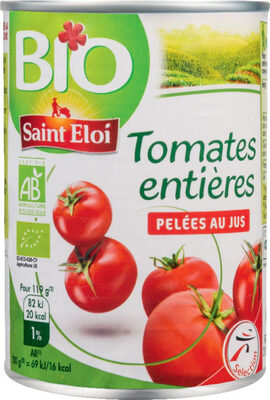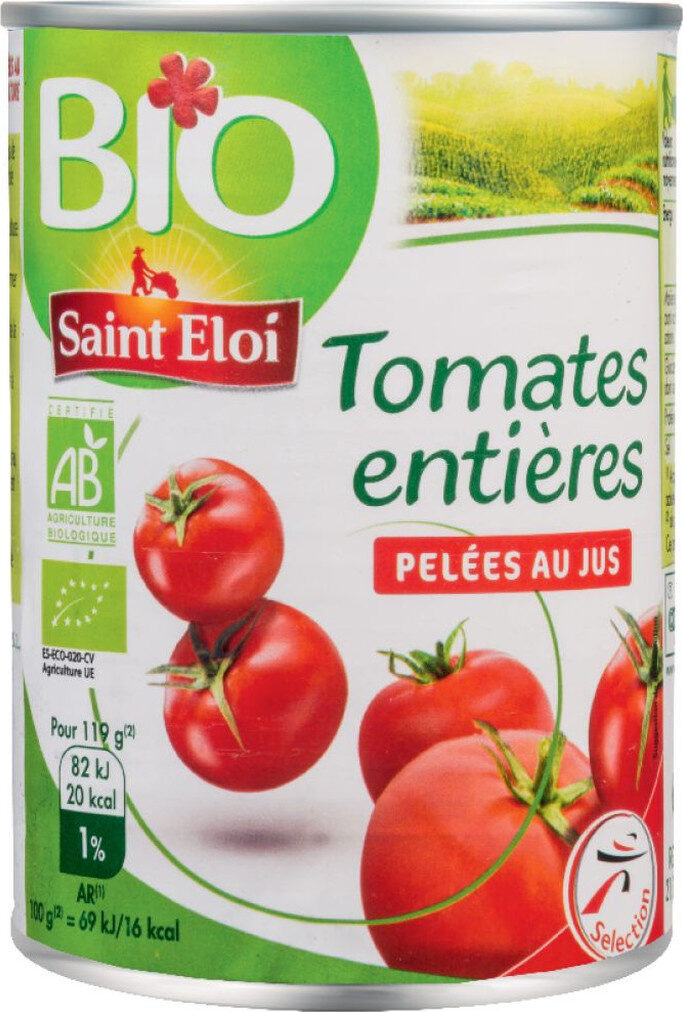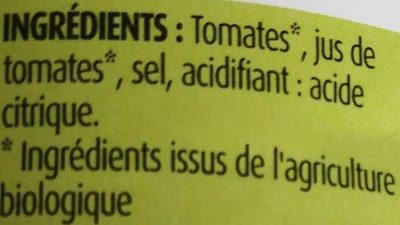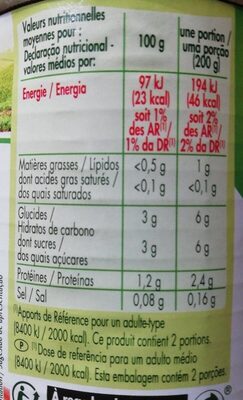Tomates entières pelées au jus bio - Saint Eloi - 383 g
This product page is not complete. You can help to complete it by editing it and adding more data from the photos we have, or by taking more photos using the app for Android or iPhone/iPad. Thank you!
×
Barcode: 3250392055257 (EAN / EAN-13)
Common name: Tomates entières
Quantity: 383 g
Packaging: Canned
Brands: Saint Eloi
Categories: Plant-based foods and beverages, Plant-based foods, Fruits and vegetables based foods, Canned foods, Vegetables based foods, Canned plant-based foods, Vegetables, Canned vegetables, Tomatoes and their products, Tomatoes, Canned tomatoes, Peeled tomatoes, fr:Tomates entières pelées au jus
Labels, certifications, awards:
Organic, EU Organic, ES-ECO-020-CV, EU Agriculture, IT-BIO-004, AB Agriculture Biologique, fr:IT-BIO-004 Agriculture Italie


Origin of ingredients: Italy, fr:Ingrédients issus de l'agriculture biologique
Manufacturing or processing places: Italie
Stores: Intermarché
Countries where sold: France
Matching with your preferences
Environment
Carbon footprint
Packaging
Transportation
Labels
Report a problem
Data sources
Product added on by tombout
Last edit of product page on by stephane.
Product page also edited by cyn, date-limite-app, djeeman, kiliweb, manuargwellan, mousquetaires, openfoodfacts-contributors, packbot, quechoisir, roboto-app, teolemon, yuka.WjQ5YU1ZQXdncUFhc3NNeThqUDMzSWhPMzUzeldUTHBDK3M0SUE9PQ, yuka.sY2b0xO6T85zoF3NwEKvlhFha4bbixL-NDDSx1SJz9azN5HOPtR2vq7iLKs, yuka.sY2b0xO6T85zoF3NwEKvlkNnQ4D_oBWdZj_6h3O7xvqWF4DGftNi2rfhIag, yuka.sY2b0xO6T85zoF3NwEKvlkdjWOHwszvLN0Xjv12U_v2yLY2wR9cj8JfYC6s, yuka.sY2b0xO6T85zoF3NwEKvllJaDYHhrRLpNkfiyHaw5_CoDprafI5LzqfxGao, yuka.sY2b0xO6T85zoF3NwEKvlmBidsvFsgPOJjvSxWil4uuXJ4bqUeNryKGla6s, yuka.sY2b0xO6T85zoF3NwEKvlmcbeOXHrmPcaT7gpna56Y-qNbqyY_5zurjTGao.











